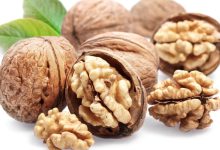Benefits of thyme tea for lungs + video
Benefits of thyme tea for lungs : Thyme, a delicate herb with a robust profile, has long been cherished in kitchens and apothecaries throughout the world. But its role is not just limited to culinary uses; thyme has proven medicinal properties, particularly when consumed as a tea. One of the most profound impacts of thyme tea lies in its benefits for lung health. In this essay, we will explore the myriad ways in which thyme tea can support and enhance pulmonary function.
10 Benefits Of Thyme You Should Know! :
Benefits of thyme tea for lungs
Historical Context
Before delving into the scientific aspects of thyme’s efficacy for lung health, it’s worth noting its historical significance. Ancient Egyptians used thyme for embalming, while the ancient Greeks utilized it as incense in sacred temples. Both cultures recognized the medicinal value of thyme, including its impact on respiratory health. Fast forward to the European Middle Ages, thyme was recommended for respiratory ailments, a testament to its enduring efficacy.

Bioactive Components
To understand the benefits of thyme tea for the lungs, it’s crucial to recognize the active components present within this herb. The primary compound is thymol, a naturally occurring phenol known for its antiseptic properties. This compound is essential in the protection against harmful organisms that can cause respiratory infections.
Besides thymol, thyme is packed with flavonoids. These compounds possess antioxidant properties which can help counteract damage to lung tissue caused by free radicals. Free radicals are unstable molecules that can damage the cellular structure, leading to premature aging and diseases. Therefore, the antioxidant effect is vital for maintaining the structural integrity of the lungs.
Anti-inflammatory Properties
Inflammation plays a pivotal role in numerous respiratory conditions like bronchitis, asthma, and chronic obstructive pulmonary disease (COPD). Thyme tea, due to its anti-inflammatory properties, can potentially help alleviate the symptoms associated with these ailments. By reducing inflammation in the bronchial tubes and airways, thyme tea can facilitate better airflow, making breathing easier and more efficient.
Expectorant Abilities
One of the hallmark benefits of thyme tea for lung health is its function as an expectorant. This means that thyme tea can assist in loosening and expelling mucus from the respiratory tract. For individuals with conditions like bronchitis or colds where mucus production is high, thyme tea can be a natural remedy to clear the airways and improve lung function.
Antimicrobial Effects
The world of microorganisms is vast, with many being harmful pathogens that can wreak havoc on our respiratory system. From bacteria to viruses, these microorganisms can lead to infections like pneumonia, tuberculosis, or whooping cough. The antimicrobial effects of thyme tea can play a significant role in either preventing these infections or aiding in their treatment. The active compounds in thyme, particularly thymol, can target these pathogens and reduce their proliferation, thus safeguarding our lungs.
Supporting Lung Detoxification
Environmental toxins, from pollutants to cigarette smoke, can accumulate in the lungs. Over time, this accumulation can lead to decreased lung function and increased susceptibility to respiratory diseases. Thyme tea can support the detoxification process of the lungs. The combination of its expectorant and antioxidant properties can help in eliminating toxins and rejuvenating the lung tissues.
Potential Protection Against Lung Cancer
Though research is still ongoing, there’s growing evidence to suggest that thyme’s bioactive compounds might have protective effects against certain types of cancers, including lung cancer. The antioxidants present in thyme, coupled with its anti-inflammatory properties, can potentially counteract the changes leading to malignant growths in the lungs.
Allied Benefits: Improving Immunity
While this essay’s focus is on the lungs, it’s worth mentioning thyme tea’s broader implications for overall health, primarily its role in immunity. A strong immune system is integral in fending off respiratory infections. Thyme tea can bolster immunity, ensuring that the lungs have an added line of defense against potential threats.
In the vast spectrum of natural remedies, thyme tea emerges as a potent ally for lung health. Its rich history, combined with modern scientific validation, underscores its significance. From alleviating symptoms of respiratory diseases to enhancing overall lung function, the benefits are undeniable. As we continue to explore the potential of natural remedies, thyme tea remains a beacon, highlighting the intricate bond between nature and health.


